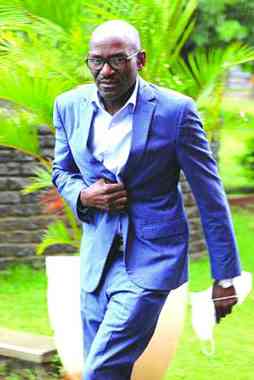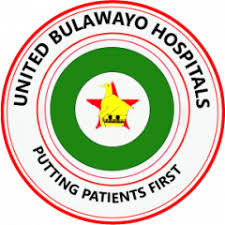
HARARE City Council (HCC) Town Clerk, Hosia Chisango (pictured), finds himself entangled in a relentless legal nightmare, as he faces multiple corruption-related charges that have left his once-powerful career in jeopardy.
In recent weeks, Chisango has been shuttled between a special inquiry probing corruption and the courts, a situation that must feel like a horror dream from which he desperately wishes to awaken.
But this is no dream — it is a harsh reality.
Chisango, a veteran of Harare’s administration with 33 years of service, was caught in a Zimbabwe Anti-Corruption Commission (Zacc) crackdown in July.
During the raid at his house, agents seized four luxury vehicles, suspecting they were acquired through proceeds of crime. The investigation centres on a multi-million-dollar tender awarded to a lighting firm, one of several corruption allegations that have plagued Zimbabwe’s capital city, home to four million residents who increasingly feel abandoned by wasteful city officials.
Over the past few weeks, the Zimbabwe Independent has closely followed the proceedings of the special inquiry established by President Emmerson Mnangagwa earlier this year to hear one of Harare’s longest serving bureaucrats explain the goings on under his watch.
Last month on August 26, Chisango, clad in a navy-blue suit, hobbled into a packed conference room at Makombe Building in Harare to testify before the Commission of Inquiry.
The commission is investigating massive corruption that has drained millions and left the city gripped by crime and mismanagement.
- Fresh demolitions hit Mbare
- Fresh demolitions hit Mbare
- RTG donates to Harare children’s home
- Harare charges resident in US$
Keep Reading
Clearly unsettled, Chisango faced a barrage of questions from the commissioners.
“Speak up,” Justice Maphios Cheda, the chair of the inquiry, commanded from his elevated position.
The town clerk struggled to justify the corporate governance practices at City Parking, an HCC subsidiary that clamps cars in Harare’s central business district.
Chisango, who likely never imagined his career could end this way when he began as a trainee cadet in 1991, has had to come to terms with the abrupt loss of the privileges associated with his influential position.
His attempts to secure bail have repeatedly failed, as the courts consider him a flight risk. He now finds himself in remand prison, facing allegations of improperly awarding a US$9,2 million contract to Juluka Endo Joint Venture.
Four other senior council officials have also been arrested on similar charges.
Beyond the retired Justice Cheda-led commission, Chisango must also answer to Zimbabwe’s courts for the same accusations. As if his legal troubles were not enough, Chisango is reportedly building another luxurious house in the affluent suburb of Mt. Pleasant, raising further questions about his financial dealings.
The lavish house, which was described by a source who spoke to our sister paper, NewsDay, as “one of the best houses in the suburb,” could also be under the spotlight.
On the day of his arrest, Zacc agents questioned Chisango’s wives as they searched his mansion.
Throughout the inquiry, Chisango has had to stand before Justice Cheda under the watchful eyes of journalists covering the proceedings. The stress and exhaustion on the town clerk's face have been evident as he struggled to respond to the commissioners' relentless questioning.
Thabani Mpofu, a lawyer and evidence leader for the commission, pressed Chisango hard on the operations of City Parking, which has been mired in corruption allegations.
“What would be the justification for a seven-member board for an entity such as City Parking operating only in Harare?’’ he fired.
Chisango’s responses were often hesitant and unclear, further revealing the depth of the issues within HCC.
“From a professional point it would be difficult to justify that size of a board for that size of a business,” Chisango said, on being asked about corporate governance at City Parking.
Members of the public attending the inquiry were baffled as evidence emerged that city officials had allowed City Parking to operate without independent financial oversight, despite being granted additional responsibilities.
“For you to accord additional responsibilities to this entity, you must be satisfied that as an entity itself, it is performing very well. Now, given the fact that there is no independent mechanism of monitoring the revenues, what was the rationale of giving them an additional responsibility?” Mpofu asked.
Chisango looked puzzled for a moment and took a sip from a water bottle in front of him. It was evident that Mpofu's line of questioning was taking a toll on him.
“We can agree that the first thing was to get clarity on City Parking and then give them that responsibility,” Mpofu said.
The commission’s investigation has revealed that three HCC entities — Rufaro Marketing, Harare Quarry, and City Parking — are plagued by poor corporate governance.
“The boards are appointed randomly, there is no financial monitoring, no auditing from the city council, and all three entities have failed to remit sufficient funds, if any, to the city council,” the commission stated.
“Suggesting that it is a fair assessment to say that this is some deliberate modus operandi by those concerned to hive these entities for the benefit of other people other than the citizens, who are rate-payers of Harare (may be accurate).”
Visibly worn down, Chisango conceded the commission’s points.
“Yes, we can get to that conclusion. There have been efforts, but most of them have not yielded results,” he admitted.
“We can only say maybe when City Parking is still in the midst of those blind spots, we don't know what is there. But you can look at the audited accounts.
“But still it's something that you cannot rely on, so I would agree with your assessment.
“There has not been a special council to discuss the entities; they just come normally through the business committee,” Chisango said.






